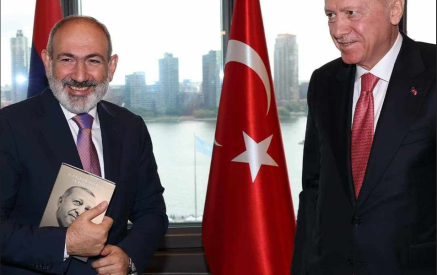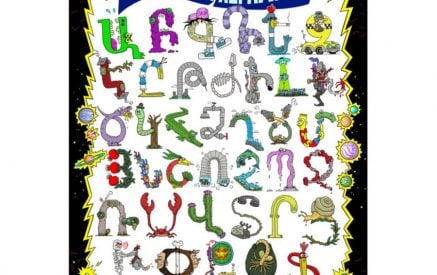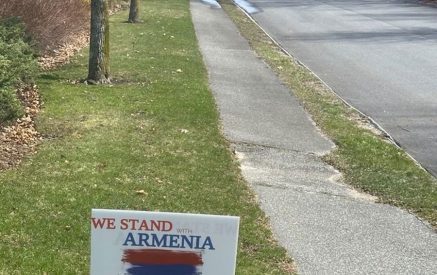The Armenian Weekly. Proficiency with language is not something that is simply inherited. It is also not something that magically stays with you over the years. It is something you cultivate, practice, develop, enhance and use to express one’s self and identity. Unfortunately, there is a misunderstanding that some people can and some people cannot learn a language. As humans, we evolved to be able to make fancy shapes with our mouths and tongue in order to produce unique sounds and communicate with each other. One of the beautiful outcomes has been Armenian, and in particular for me, Western Armenian. I’ve met people who learned Western Armenian since birth as it was spoken in their home. I’ve met people who learned it later in their adult lives. I’ve even met non-Armenians who learned Armenian and bask in its incredible beauty!
One story that has always fascinated me is that of Lord Byron. He was a well-known British Romantic poet who in the early 1800s journeyed to the island of San Lazzarro degli Armeni in Venice, and learned Armenian with the Mekhitarist monks. He learned Classical Armenian (Գրաբար) as well as modern Western Armenian. He translated works from Classical Armenian into English and even helped publish an Armenian-English dictionary. In his letters describing his experiences on the island, it was evident he admired the beauty of our Armenian language and culture.
Like all activities though, it is through consistent practice that skill is developed, and it’s through consistent practice that proficiency is maintained. Just because someone learned Armenian from speaking it at home doesn’t mean their Armenian will be fluent and elegant if they choose not to speak it for the next 10 years. Just because someone never had the opportunity to learn until adulthood doesn’t mean that they cannot become fluent in their lives. Just like playing a music instrument, the skill can be lost if it isn’t practiced and refined in time.
Armenian is a beautifully unique language, as can be seen by its position in the Indo-European language tree. It utilizes declensions of nouns, which is another way of saying that we alter our nouns in order to describe possession of objects or references to these nouns. This gives us the ability to shuffle the order of our sentences and retain its meaning, giving us poetic freedom in how we express our thoughts. Armenian even has a unique form of a question mark, (՞) which we can place on a word in question. Imagine the sentence, “You went to the market at 3 pm?” In English, without hearing someone say the sentence, it will be unclear which part of the sentence is in question. Using the Armenian question mark, we can put into question, Դո՞ւն շուկայ գացիր երեքին, questioning whether it was you who went. We can say, Դուն շուկա՞յ գացիր երեքին, questioning whether it was the market that you went to or somewhere else. We can also say Դուն շուկայ գացիր երեքի՞ն, questioning whether it was at 3 pm that you went to the store. What a clever aspect of language!
Read also
Armenian is something we should learn to incorporate into our daily lives. I view it much like a beautiful garden. You must constantly water and tend to the plants, much like how language must be consistently utilized, practiced and developed. Armenian keyboards have been a normal addition now to any smart phone and allows me to communicate with my family and friends on social media. There are online classes for learning Armenian, books that outline methods for learning Armenian and even techniques that use English as a contrastive approach.
It makes me sad that often among the Armenian youth the celebration of the language is misunderstood as an attack on those who don’t speak it. It also makes me sad that most peoples’ memories are of being pressured to learn rather than being excited to learn the beautiful language. In addition to our alphabet, we have more online resources than ever before. Much like learning a language in high school that begins with learning the pronunciation of letters, studying common phrases such as “hello,” “how are you,” etc., and eventually reading full paragraphs, the resources to learn Armenian are available at our fingertips. For example, Nayiri.com is an online dictionary, ma6.free.fr is an online verb conjugator for both Eastern and Western Armenian, and Wikipedia even has a nice summary of some of the details of the language.
In short, being able to speak and read Armenian is not simply something that is achieved only in youth, but it is a lifestyle choice made in order to maintain and strengthen, and even to create with. I choose to maintain the Western Armenian language as a part of my life and hope others enjoy its beauty as well. I leave you with a quote by Lord Byron about the Armenian language: “It is a rich language, and would amply repay anyone the trouble of learning it.”



























































